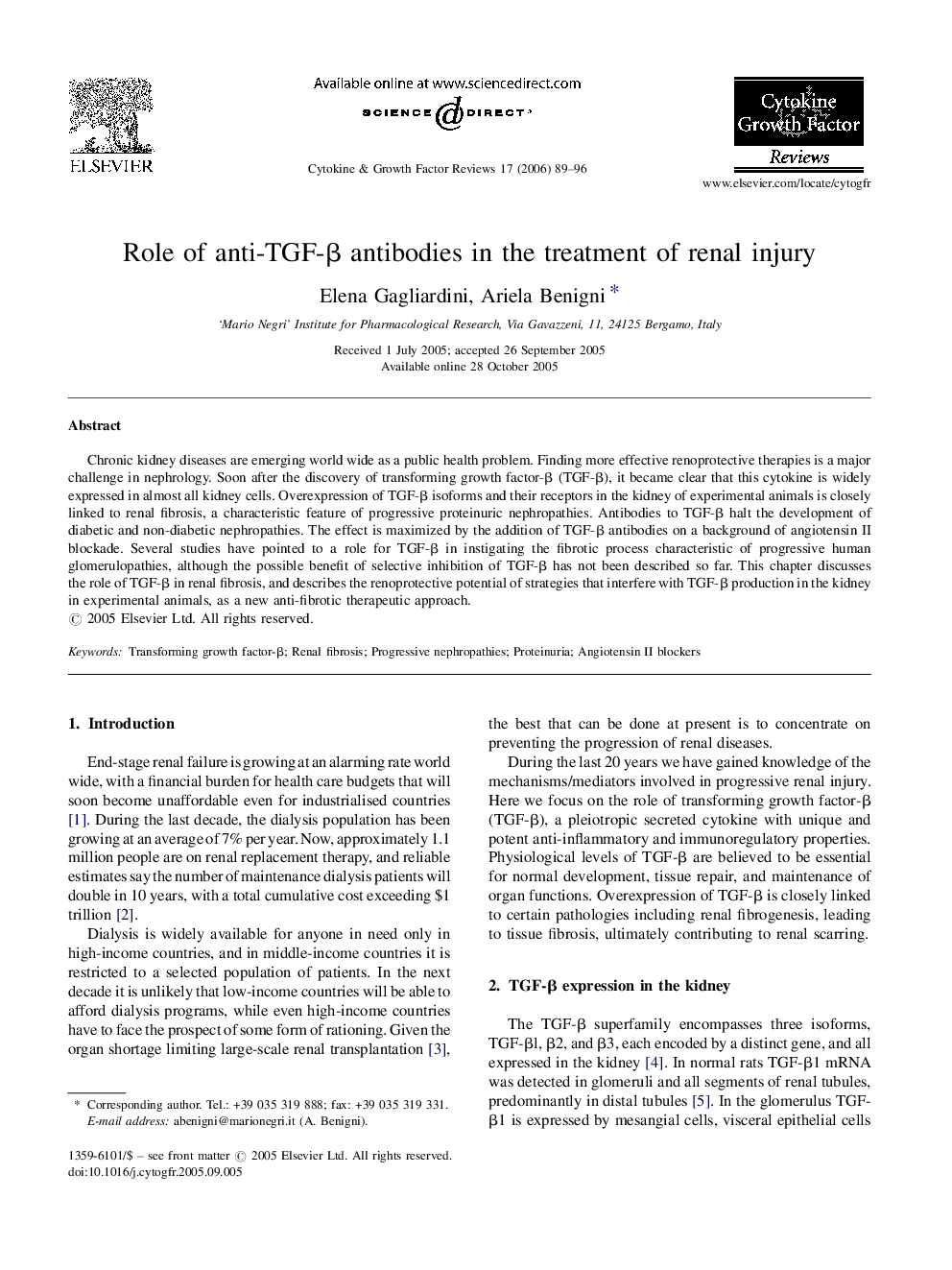| کد مقاله | کد نشریه | سال انتشار | مقاله انگلیسی | نسخه تمام متن |
|---|---|---|---|---|
| 2170987 | 1549508 | 2006 | 8 صفحه PDF | دانلود رایگان |

Chronic kidney diseases are emerging world wide as a public health problem. Finding more effective renoprotective therapies is a major challenge in nephrology. Soon after the discovery of transforming growth factor-β (TGF-β), it became clear that this cytokine is widely expressed in almost all kidney cells. Overexpression of TGF-β isoforms and their receptors in the kidney of experimental animals is closely linked to renal fibrosis, a characteristic feature of progressive proteinuric nephropathies. Antibodies to TGF-β halt the development of diabetic and non-diabetic nephropathies. The effect is maximized by the addition of TGF-β antibodies on a background of angiotensin II blockade. Several studies have pointed to a role for TGF-β in instigating the fibrotic process characteristic of progressive human glomerulopathies, although the possible benefit of selective inhibition of TGF-β has not been described so far. This chapter discusses the role of TGF-β in renal fibrosis, and describes the renoprotective potential of strategies that interfere with TGF-β production in the kidney in experimental animals, as a new anti-fibrotic therapeutic approach.
Journal: Cytokine & Growth Factor Reviews - Volume 17, Issues 1–2, February–April 2006, Pages 89–96